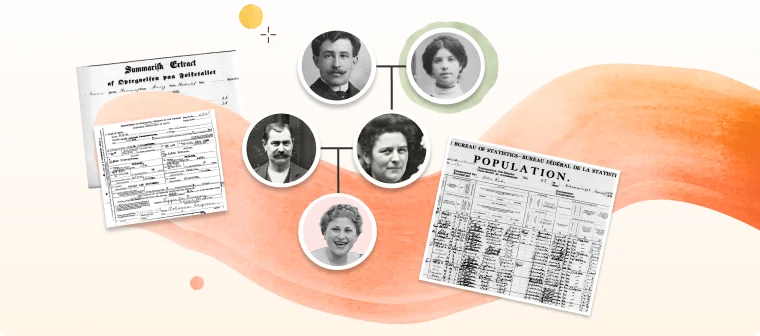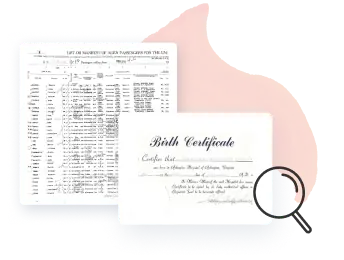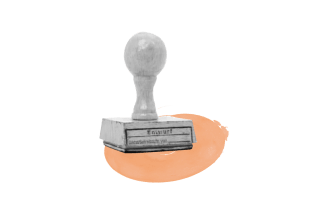Name Directory by Last Name: Last Names Starting with Wa
Explore millions of names to discover rich genealogical details and uncover your family's history
Enter a name to research
Last name meanings and origins
- Walker
The surname Walker has its historical roots in England, deriving from the Old English term "wealcere," which referred to a fuller or walker of cloth—someone who would clean and thicken cloth by trampling it in water. This occupational surname first appeared in the medieval period, with records dating back to the 13th century.
- Ward
The surname Ward has its origins in the Old English word "weard," meaning "guard" or "watchman." It first appeared in England during the medieval period, particularly in the 12th century, as a surname for individuals who served as guardians or keepers of a particular place, such as a manor or a castle. Over time, the name became associated with various occupations, including those of watchmen, wardens, and caretakers, reflecting the social roles that individuals with this surname played in their communities.
- Watson
The surname Watson has its historical roots in England, deriving from the medieval given name "Wat," a diminutive of Walter, which means "ruler of the army" in Old German. The name first appeared in written records in the 13th century, particularly in Yorkshire, where it was often used to denote "son of Wat." Over time, Watson evolved into a hereditary surname, reflecting the common practice of adopting paternal names as family identifiers.
- Wallace
The surname Wallace has its roots in medieval Scotland, deriving from the Old French term "Wallace," which means "Welshman" or "foreigner." It is believed to have first appeared in the 13th century, particularly associated with the region of Renfrewshire. The name is often linked to the legendary figure William Wallace, a Scottish knight who became a national hero for his role in the Wars of Scottish Independence against England in the late 13th century.
- Wagner
The surname Wagner has its roots in the Germanic language, deriving from the Middle High German word "wagner," which means "wagon maker" or "cartwright." This occupational surname first appeared in the medieval period, particularly in the regions of Germany and Austria, where skilled craftsmen were essential to the agrarian economy. As a surname, Wagner reflects the trade and social role of its bearers, who were often involved in the construction and repair of wagons, an essential mode of transport during that era.
- Walsh
The surname Walsh has its roots in Ireland, deriving from the Gaelic name "Breathnach," which means "Welshman." This connection reflects the historical ties between the Welsh and the Irish, particularly during the early medieval period when the Anglo-Norman invasion brought various influences to Ireland. The Walsh surname first appeared in the 12th century, primarily in counties Kilkenny and Wexford, where the family became prominent landowners and warriors.
- Warner
The surname Warner has its roots in the Old Germanic name "Wernher," which is derived from the elements "wer" meaning "man" and "hari" meaning "army." This surname first appeared in medieval England, particularly after the Norman Conquest of 1066, when many Germanic names were introduced into the English lexicon. Over time, the name evolved, with variations such as Wernor and Wernor becoming common.
- Watkins
The surname Watkins has its roots in the medieval period of England, deriving from the diminutive form of the given name Walter, which itself comes from the Old Germanic elements "wald" (rule) and "heri" (army). The name was first recorded in the 13th century, with early instances found in Wales and the West Midlands of England.
- Walters
The surname Walters has its historical roots in the Old German name "Walter," which means "ruler of the army" or "commander." It first appeared in medieval Europe, particularly in Germany and England, during the 12th century. The name was often associated with individuals who held positions of authority or military leadership, reflecting the feudal system of the time.
- Watts
The surname Watts has its historical origins in England, deriving from the medieval given name "Watt," which itself is a diminutive of "Walter." The name Walter comes from the Old Germanic elements "wald," meaning "rule," and "heri," meaning "army." The surname first appeared in written records in the 13th century, with its bearers often associated with various occupations, including farming and craftsmanship. As a patronymic surname, Watts signifies "son of Watt," reflecting the common practice of naming children after their fathers.
- Walton
The surname Walton has its historical origins in England, deriving from the Old English elements "walh," meaning "foreigner" or "Welshman," and "tun," meaning "enclosure" or "settlement." This suggests that the name originally referred to someone who lived in or near a settlement associated with foreigners or a specific community. The surname first appeared in written records in the 12th century, particularly in the regions of Lancashire and Yorkshire.
- Wade
The surname Wade has its historical roots in Old English, deriving from the personal name "Wada," which is believed to mean "to go" or "to advance." The name first appeared in written records in England during the early medieval period, with its earliest instances found in the 11th century. Over time, the surname became associated with various occupations, particularly those related to water, such as fishermen or individuals living near rivers or marshes.
- Walter
The surname Walter has deep historical roots, primarily derived from the Old High German name "Walthari," which means "ruler of the army." It first appeared in medieval Europe, particularly in the regions that are now Germany and France, around the 8th century. Over time, the name evolved into various forms, including Walter, Walther, and Gualtiero, reflecting the linguistic changes in different regions.
- Waters
The surname Waters has its historical roots in England, deriving from the Old English word "wæter," meaning "water." It is believed to have first appeared in the medieval period, with records dating back to the 13th century. The name likely originated as a topographical surname for individuals living near a body of water, such as a river or lake, or as a nickname for someone who worked in occupations related to water, such as fishing or milling.
- Wall
The surname Wall has its historical origins primarily in England, where it is believed to have first appeared in the medieval period. The name is derived from the Old English word "weall," meaning "a wall" or "a rampart," which likely referred to someone who lived near a defensive wall or a fortified structure.
- Wayne
The surname Wayne has its historical roots in England, deriving from the Old English word "wægn," which means "wagon" or "cart." This suggests that the name may have originally been occupational, referring to someone who worked with wagons or was a cartwright. The surname first appeared in written records in the medieval period, with variations such as "Wain" and "Waine" also noted.
- Watt
The surname Watt has its origins in the medieval period, primarily derived from the given name Walter, which itself comes from the Old Germanic elements "wald" (rule) and "heri" (army). The name Walter was popularized in England and Scotland, leading to the diminutive form Watt, which became a common surname by the 13th century.
- Ware
The surname Ware has its historical origins rooted in England, with its earliest appearances dating back to the medieval period. The name is believed to derive from the Old English word "waer," meaning "weir" or "dam," which indicates a geographical feature associated with water bodies.
- Waller
The surname Waller has its historical roots in England, with origins tracing back to the Old French word "wallier," meaning "to wall" or "to build a wall." This suggests that the name may have originally been occupational, referring to someone who constructed walls or worked in masonry. The surname first appeared in historical records during the medieval period, particularly in the 13th century, and was often associated with individuals living near or working on fortifications or boundary walls.
- Washburn
The surname Washburn has its historical roots in England, with its earliest appearances dating back to the medieval period. The name is believed to be derived from the Old English elements "wæsc," meaning "to wash," and "burna," meaning "stream" or "brook," suggesting a geographical feature associated with water.
- Waite
The surname Waite has its historical roots in England, deriving from the Old English word "waite," which means "watchman" or "guard." This occupational surname likely emerged during the medieval period, when surnames began to be adopted for identification purposes. The earliest records of the surname date back to the 13th century, with individuals bearing the name often associated with roles in law enforcement or local governance, reflecting a social role that involved vigilance and protection.
- Wakefield
The surname Wakefield has its origins in England, deriving from the Old English words "wacu" (meaning "watch" or "vigil") and "feld" (meaning "open land" or "field"). The name is believed to have first appeared in the 12th century, associated with the town of Wakefield in West Yorkshire, which was historically significant as a market town and a center for wool production.
- Wallis
The surname Wallis has its historical roots in England, deriving from the Old French term "Waleis," which means "Welshman" or "foreigner." It first appeared in the medieval period, particularly after the Norman Conquest of 1066, when many French names were introduced into England. The name is often associated with individuals who may have come from Wales or had connections to Welsh ancestry.
- Walls
The surname Walls has its historical origins rooted in the Old English word "weall," which means "a wall" or "a rampart." This suggests that the name may have originally been a topographical surname for someone who lived near a significant wall or fortification, or it could have been a nickname for someone who worked as a builder or caretaker of such structures. The surname is believed to have first appeared in England during the medieval period, with records dating back to the 13th century.
- Waterman
The surname Waterman has its historical roots in England, where it first appeared in the medieval period. The name is derived from the Old English term "wæterman," which translates to "waterman" or "one who works with water," often referring to individuals who were involved in occupations related to water, such as fishermen, boatmen, or those who managed water transport.
- Waddell
The surname Waddell has its historical roots in Scotland, particularly in the region of Lanarkshire, where it is believed to have originated in the medieval period. The name is derived from the Old English personal name "Wad," which means "to wade," combined with the suffix "-ell," indicating a diminutive form.
- Wadsworth
The surname Wadsworth has its historical roots in England, specifically deriving from the Old English elements "wæd," meaning "a ford," and "worth," meaning "enclosure" or "homestead." This suggests that the name originally referred to someone who lived near a ford or a homestead by a river. The earliest recorded instances of the surname date back to the 13th century, with variations appearing in various historical documents.
- Waldron
The surname Waldron has its historical roots in medieval England, deriving from the Old English personal name "Waldhere," which means "ruler of the army." The name first appeared in written records in the 12th century, particularly in the regions of Yorkshire and Lancashire. Over time, the surname evolved, with variations such as Walderon and Waldrun emerging.
- Waring
The surname Waring has its historical roots in England, with origins tracing back to the Old English personal name "Wæring," which means "the one who is watchful" or "the guardian." The name is believed to have first appeared in the medieval period, particularly in the 12th century, and was often associated with individuals who held roles as watchmen or guardians of land. Over time, the surname evolved, with various spellings emerging, including Waringe and Warington, reflecting regional dialects and phonetic changes.
- Walden
The surname Walden has its historical roots in England, with its earliest appearances dating back to the medieval period. The name is derived from the Old English elements "wald," meaning "forest" or "wood," and "denu," meaning "valley." This suggests that the original bearers of the surname may have lived near a wooded valley or were associated with such geographical features.
- Waugh
The surname Waugh has its historical roots in Scotland, particularly in the region of Fife, where it is believed to have originated from the Gaelic word "badh," meaning "a bog" or "a marsh." This suggests that the name may have been used to describe individuals who lived near such geographical features. The surname first appeared in written records in the 13th century, and over time, it became associated with various occupations, including farming and land management, reflecting the agrarian lifestyle of early Scottish society.
- Watanabe
The surname Watanabe has its roots in Japan, where it is believed to have originated during the Heian period (794-1185). The name is derived from the Japanese words "wata," meaning "cotton," and "nabe," which translates to "pot" or "container." Historically, the Watanabe family was associated with various occupations, including farming and textile production, reflecting the agrarian society of early Japan.
- Wainwright
The surname Wainwright has its historical roots in England, deriving from the Old English term "wain" meaning "wagon" and "wyrhta," which translates to "worker" or "maker." This indicates that the original bearers of the surname were likely involved in the trade of wagon-making or related crafts, a vital occupation in medieval society as transportation was crucial for trade and agriculture. The surname first appeared in written records in the 13th century, particularly in the northern regions of England, where the demand for skilled craftsmen was high.
- Warwick
The surname Warwick has its historical roots in England, specifically deriving from the Old English elements "wer" meaning "man" and "wic" meaning "dairy farm" or "settlement." The name is most commonly associated with the town of Warwick in Warwickshire, which dates back to the Anglo-Saxon period. The earliest recorded instance of the surname can be traced back to the 12th century, when it was used to denote individuals from this area.
- Way
The surname Way has its historical roots primarily in England, where it is believed to have originated from the Old English word "weg," meaning "way" or "path." This suggests that the name may have been used to denote someone who lived near a road or pathway, or perhaps someone who was involved in the construction or maintenance of such routes. The surname can be traced back to the medieval period, with records indicating its presence in various forms as early as the 13th century.
- Wahl
The surname Wahl has its roots in Germanic and Scandinavian cultures, deriving from the Old High German word "walah," which means "foreigner" or "stranger." It is believed to have first appeared in the medieval period, particularly in regions that are now part of modern-day Germany and Scandinavia. Over time, the surname evolved, often associated with individuals who were involved in trade or migration, reflecting the movement of people across borders.
- Wagoner
The surname Wagoner has its historical roots in the Old English and Middle English terms related to the occupation of a wagon driver or cartwright, deriving from the word "wagon," which itself has Germanic origins. The name likely first appeared in England during the medieval period, around the 12th century, when surnames began to be adopted based on occupations.
- Warden
The surname Warden has its historical roots in England, deriving from the Old French word "warden," which means "guardian" or "watchman." It first appeared in the medieval period, particularly in the 12th century, when it was often associated with individuals who held positions of authority or responsibility, such as wardens of castles, churches, or other significant establishments. The name likely developed as a title for those tasked with overseeing the safety and management of these places, reflecting a social role that was both respected and essential in feudal society.
- Warburton
The surname Warburton has its historical roots in England, specifically deriving from the Old English elements "wer," meaning "man," and "burh," meaning "fortress" or "town." The name is believed to have originated from the village of Warburton in Cheshire, where it first appeared in historical records during the medieval period. The surname likely developed as a locational identifier for individuals or families residing in or near this area.
- Wales
The surname Wales has its historical roots in the Old English term "Wealas," which referred to the Celtic inhabitants of Britain, particularly the Welsh people. The name emerged in the early medieval period, around the 9th century, as Anglo-Saxon settlers began to differentiate between themselves and the native Celtic populations.
Start your family tree for free
Start by entering a few names and MyHeritage will do the rest, so you can make meaningful discoveries

Explore historical records

Explore 1,810,427,080 census and voter list records to get a detailed snapshot of your ancestors' lives. Discover names, ages, occupations, family relationships, residences, and much more.

Explore 4,647,704,406 birth, marriage, and death records. Uncover valuable details about major family milestones and find names, dates, places, occupations, and residences of your ancestors and relatives.

Search 266,544,192 military records and discover the stories of courage and resilience in your family history. Military records include enlistment dates, ranks, locations, and even physical descriptions.
Embark on a fascinating journey to discover your family history

Start by adding a few names. Myheritage's automatic matching technology will help you expand your family tree and delight you with new discoveries.

Reveal your ethnic origins and find relatives you never knew existed with our simple DNA kit.

Dive into MyHeritage's international collection of 36.7 billion historical records - start with a name of an ancestor and see what our collections can reveal about your family history.
About MyHeritage

MyHeritage is the leading global platform for family history. It enriches the lives of people worldwide by enabling them to uncover more about themselves and where they belong. With a suite of intuitive products, billions of historical records, an affordable at-home DNA test, and AI-powered photo tools, MyHeritage creates a meaningful discovery experience that is deeply rewarding. The MyHeritage platform is enjoyed by tens of millions of people around the world who treasure and celebrate their heritage.








